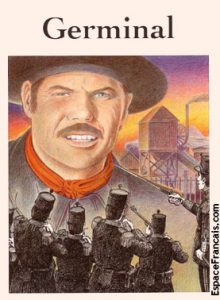

It put no bread into your cupboard to go and vote for fine fellows who went away and enjoyed themselves, thinking no more of the wretched voters than of their old boots. Yes, free to starve, a freedom of which they fully availed themselves. Who could say that the workers had had their reasonable share in the extraordinary increase of wealth and comfort during the last hundred years? They had made fun of them by declaring them free. The workers could not hold out the Revolution had only aggravated their wretchedness only the bourgeois had grown fat since ‘89, so greedily that they had not even left the bottom of the plates to lick. Omnipresent and polymorphic, absolutely not “scientific”, contrary to what Zola claims, but very suggestive on the poetic level, the Beast remains one of the most striking metaphors of evil that the ending nineteenth century have invented.“They spoke one after the other in a despairing voice, giving expression to their complaints. The Beast is a curious relative of the Christian devil, on the one hand, and of the evil deities of paganism, on the other. It proves that the way Zola uses this notion corresponds in fact very vaguely to his own naturalist theories. The article examines in detail how the “bad Beast” works in practice, in Germinal’s text.

But where does the human bestiality come from, since we do not keep it from animals? In theory, Zola begins by imputing it to the incompatible “shock of temperaments” (Thérèse Raquin), then he explains it by misery (Germinal) or analysis it as degeneration, a “hereditary crack” (The Human Beast). To the somewhat Rousseauist eyes of the French writer, the animal is always good and man, animated by a “fraternal tenderness” towards him, has a sacred duty to defend this mute and fragile companion against hunger and cruelty. The Mysteries of the Zolian Beast Few French writers have pushed the love of animals as far as Emile Zola.


 0 kommentar(er)
0 kommentar(er)
